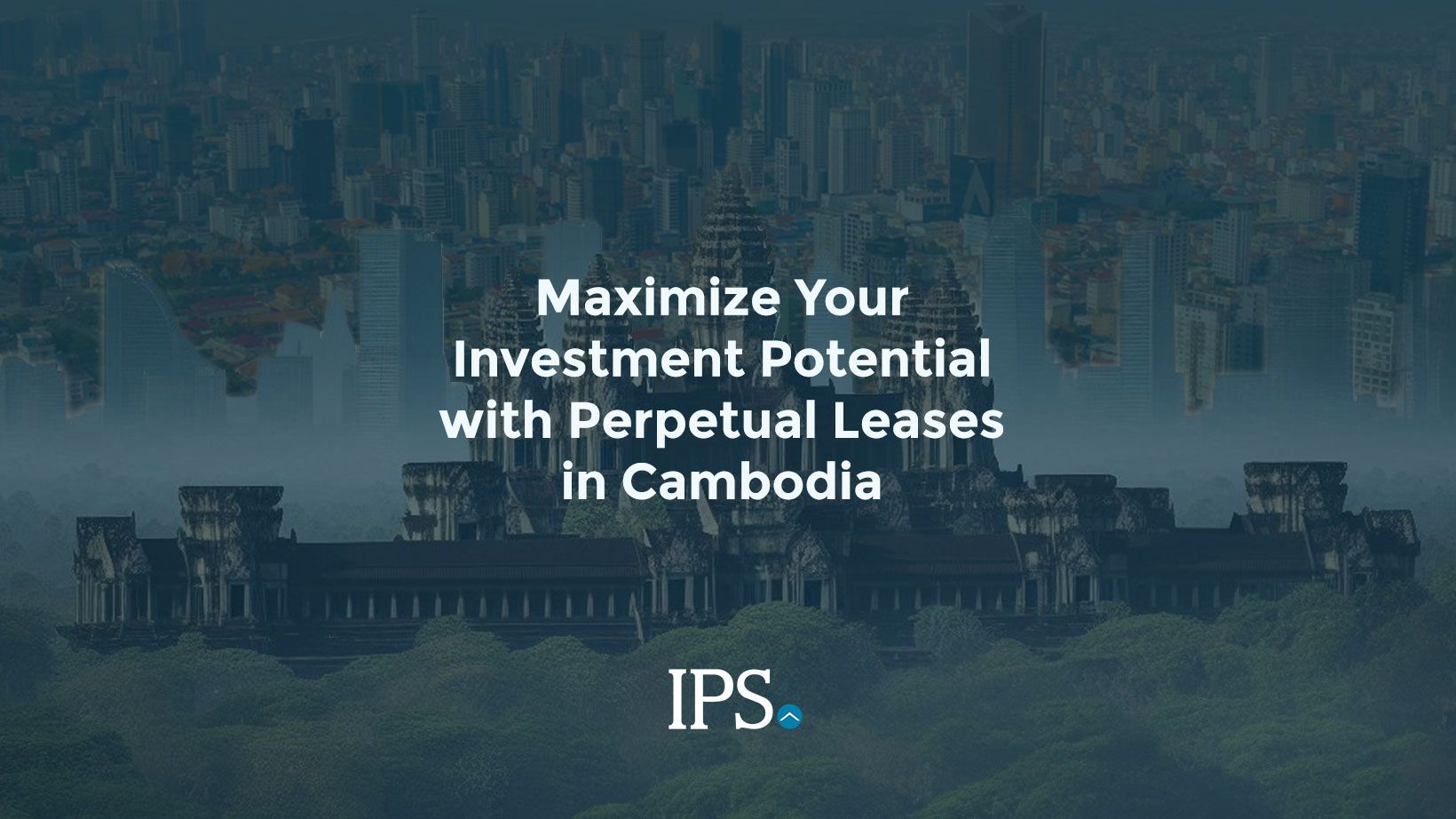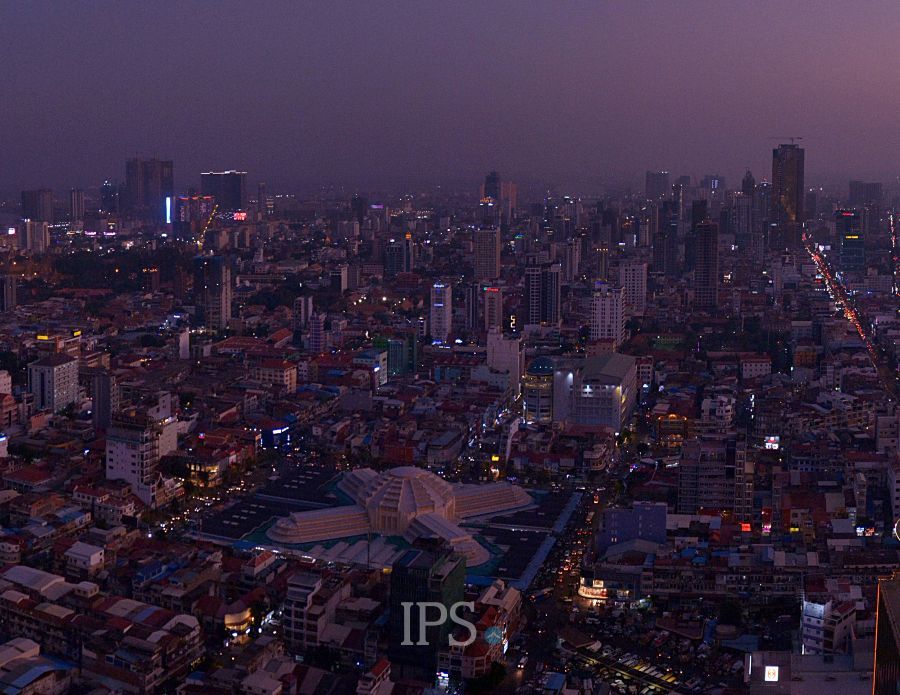The Ultimate Guide to Understanding and Leveraging Long-Term Lease Opportunities
Investing in immovable property offers significant opportunities, particularly in a growing market like Cambodia. For investors considering long-term commitments, a perpetual lease can be a highly advantageous arrangement. This article outlines the key aspects of perpetual lease agreements, highlighting the crucial clauses to include to maximize benefits and minimize risks.
What is a Perpetual Lease?
A perpetual lease is a long-term leasing arrangement specifically for immovable properties, where one party permits another to use and profit from the property in return for compensation (Articles 244 & 596, Civil Code 2007). Unlike traditional leases, perpetual leases offer a stable and extended period of use and profit from immovable property. This makes them a favorable choice for investors looking to secure long-term investments in areas such as real estate development, agricultural enterprises, the hospitality industry, industrial facilities, and educational institutions, among others. It also provides a legal pathway for foreigners to obtain long-term use rights over ground floor property, offering an alternative to direct ownership, which is generally restricted under Cambodian law.
What makes a perpetual lease stand out?
A perpetual lease stands out from other lease types due to several key features:
- Immovable Property: Specifically designed for land or buildings, making it ideal for long-term investments.
- Extended Duration: By law, lasting between 15 and 50 years, with a single renewal option allowing the total lease term to reach up to 100 years (Articles 244 & 247, Civil Code 2007).
- Renewal Option: This feature, uncommon in standard leases, allows for a single renewal, extending the total lease term up to 100 years.
- Subleasing: The property subject to the perpetual lease can be subleased.
- Transferability: Can be assigned or inherited, adding flexibility and value. A perpetual lease may also be made the Object of a hypothec, meaning that the lessee can pledge their lease rights as collateral for a loan or debt (Article 843, Civil Code 2007).
- Legal Protection: Registered leases are protected against third parties, ensuring security even with changes in property ownership (Article 246, Civil Code 2007)
- Stable Usage and Profit: Provides long-term access and predictable returns, making it attractive for investors and businesses.
How to Maximize the benefits and Minimize Risk of Perpetual Lease in the agreement?
Besides common clauses such as recitals, definitions, interpretation, force majeure, dispute resolution, governing laws, etc., a perpetual lease agreement should also be included the following clauses to maximize benefits and minimize risks:
Clear Duration and Renewal Terms
- Specify Duration: Clearly define the initial lease term (15 to 50 years) and the renewal option, ensuring that all parties understand the exact length and conditions of the lease.
- Renewal Terms: Include detailed conditions for renewing the lease, such as how and when renewal must be requested, to avoid misunderstandings or disputes.
Detailed Rent Provisions
- Rent Amount and Adjustments: Specify the initial rent amount, payment schedule, and any conditions for adjustments or increases to ensure predictable costs.
- Late Fees and Penalties: Outline penalties for late rent payments to encourage timely payments.
Rights and Obligations
- Usage and Profit: Clearly define how the property can be used and profited from, and outline the lessee’s responsibilities to maintain the property according to these terms.
- Maintenance and Repairs: Specify which party is responsible for maintenance and repairs to avoid disputes over property upkeep.
Transferability and Subleasing
- Assignment and Inheritance: Detail the conditions under which the lease can be assigned or inherited, including any required approvals or procedures.
- Subleasing: Include provisions for subleasing, if applicable, specifying the terms and any necessary permissions.
Termination Conditions
- Early Termination: Define conditions under which either party can terminate the lease early, and outline any penalties or procedures for doing so.
- Default and Remedies: Specify actions that constitute a default and the remedies available to the non-defaulting party.
Insurance and Liability
- Insurance Requirements: Include requirements for insurance coverage to protect against potential damages or liabilities related to the property.
- Liability Clauses: Clearly outline the liability of each party for damages or losses arising from the use of the property.
Additional Recommendations:
To effectively minimize risks, investors should consider the following recommendations:
- Document Everything in Writing: Ensure that all terms are meticulously documented and signed by both parties to safeguard your interests (Article 245, Civil Code 2007).
- Register the Lease: It is crucial to register the lease with the Ministry of Land Management, Urban Planning and Construction to protect yourself against third-party claims and potential changes in property ownership (Article 246, Civil Code 2007).
- Compliance with Local Laws: Verify that the agreement adheres to all local laws and regulations to avoid any legal complications that could affect your investment.
- Seek Expert Advice: Secure the guidance of experienced professionals to ensure you navigate the complexities of the agreement effectively and make well-informed decisions.
IPS provides expert guidance throughout the process of securing a perpetual lease. Our team ensures that all critical clauses are properly addressed, helping to maximize benefits and minimize risks. From drafting comprehensive agreements to navigating legal requirements and offering strategic advice, IPS is dedicated to protecting your investment and ensuring a smooth leasing experience. Trust IPS to be your partner in making informed and advantageous real estate decisions.
• Introduction to Cambodia
» Introduction to Phnom Penh
» Introduction to Siem Reap
» Monarchy & Government
• Tourism & Residency
» Thriving Tourism Industry
» Visas in Cambodia
• Healthcare & Education
» Healthcare in Cambodia
» Education in Cambodia
» International Schools in Cambodia
• Technology
» The Rise of Technology in Cambodia
• Why invest in property in Cambodia?
• Why Invest in Condominiums?
» Condo Ownership Journey in Cambodia
• Cambodian Property Tax Guide
• Can Foreigners Own Land in Cambodia?
• Understanding Cambodian Property Titles
» Strata Title: Background, Benefits, Legal Value
• The IPS Cambodia Advantage
» Why Choose IPS?


